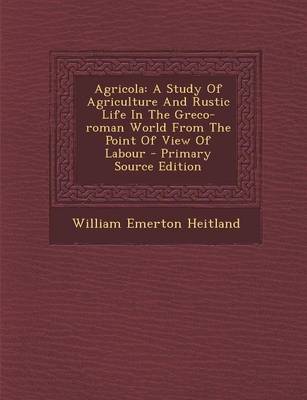Cambridge Library Collection - Classics
1 total work
William Emerton Heitland (1847-1935) was a Cambridge classicist, who was described as having 'a passionate desire to attain the truth'. His most distinguished work, Agricola, published in 1921, is a detailed study of agricultural labour in classical times. He makes use of a wide range of sources, from Homer in the eighth century BCE to Apollinaris Sidonius in the fifth century CE. In asking the question, by whom and under what conditions was the work done, he deals with land tenure, taxation, military service and political theory. He argues that changes in agricultural production were necessarily connected to changes in other areas of society. To a large extent, classical agriculture was based on slavery, and even those who were free tenants had limited legal rights. Roman poets such as Virgil idealised the pastoral life, but may not reflect reality. It is an important sourcebook for social and economic history.
